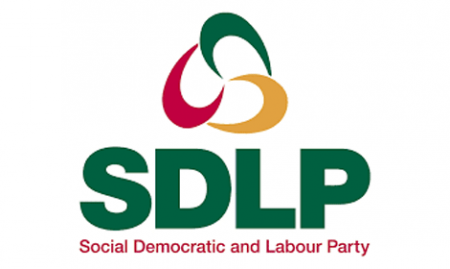SDLP Strongly Opposes Abortion Proposals
17/02/2015: SDLP
The SDLP (Social Democratic and Labour Party) has strongly reiterated the party’s longstanding opposition to abortion. In a submission responding to the Department of Justice consultation on proposals to change the law on abortion, the party stated at the outset that “as decided by Party Conference, the SDLP is totally opposed to abortion and to any extension of the Abortion Act 1967 to Northern Ireland.”
The SDLP rejects the Department’s assertion that its consultation is not a debate on the wider issues of abortion law. It also rejects the prescriptive nature of the Consultation paper, “which is premised on the very certain view that there should be a positive change in the criminal law so as to permit abortion for cases of Lethal Foetal Abnormality.” That uncontested premise, the submission states, is the substantive position of the Department of Justice, and it is simply consulting on how that should be enacted, not whether it should be enacted.
The submission points out that the premise put forward by the Department effectively constrains the type of response which can be offered by people who, while opposed to abortion, are seeking a solution to the situation of a parent whose baby is diagnosed with a Lethal Foetal Abnormality. “This is primarily a health issue and should be addressed within that context with a particular focus on adequate counselling and psychotherapy support services for women directly affected by such pregnancies. Women must be fully supported by the health service throughout their pregnancies, in coping with and addressing the medical and other difficulties that will arise.”
In relation to women whose baby’s receive such a diagnosis, the submission points to “a wide range of health experience in Northern Ireland and Ireland generally that supports the view that, even though the child may die during delivery or very shortly thereafter, mothers with this type of pregnancy gain a lot of solace and comfort in bringing their baby with a fatal abnormality to full term, or as near as possible. In addition, their near families also derive a lot of benefit and comfort. This has been fully documented. It is also evidenced that some of those who have had abortions in such circumstances suffer a great deal of regret and remorse and psychological damage arising out of their abortions.” None of this, the party charges has been properly canvassed in the consultation document. “There is an underlying assumption that in such circumstances abortion is the solution to the mother’s worries and concerns and that it is simply another health care option.”
The submission points to the provision of the 1967 Abortion Act (England and Wales) which permits the abortion of a disabled baby at any time during pregnancy as “the most egregious aspect” of that Act, which it notes is “an extraordinary provision, even by the more permissive abortion standards pertaining in Western Europe, which gives licence to abort a seriously disabled baby at any time up to birth.” If that provision applied in Northern Ireland it would cover the cases that the Department wishes to cover. “Remember a Lethal Foetal Abnormality baby is in fact a seriously disabled baby that has a very short life span after delivery or birth. The baby is anencephalic, which effectively means a baby whose brain is severely underdeveloped. It is not without a brain and has sensory perception including pain and appreciation of warmth and cold. It is a baby, like any other baby in the womb, except that it is seriously disabled.”
The SDLP points out that the European Convention on Human Rights contains no right to an abortion and that Northern Ireland’s abortion law, which is within the competence of the Northern Ireland Assembly, complies with the Convention.
The submission makes observations on the options laid out by the Department, but with the firm understanding that the SDLP does not lend its support to any of them.
The submission concludes with a summary of the party’s position:
“The Consultation paper is far from being a neutral document, having been deliberately structured to provide a pre-determined answer in favour of abortion for babies suffering from Lethal Foetal Abnormality. The document does not offer sufficient room for discussion of the issue of abortion. All should be mindful that there is no right to abortion under the ECHR and that it grants a wide margin of appreciation in the area of abortion law, thereby permitting the Assembly to determine the law on abortion. Options 1, 2 and 3 are unacceptable for the reasons outlined herein. Option 4 is also unacceptable for similar reasons given its own uncertainty and lack of clarity. If adopted and made into law it could open up the way for a wider application of abortion in Northern Ireland. The Consultation has ignored the well recorded democratic consensus against abortion that exists within Northern Ireland and the Assembly.”
SDLP.


